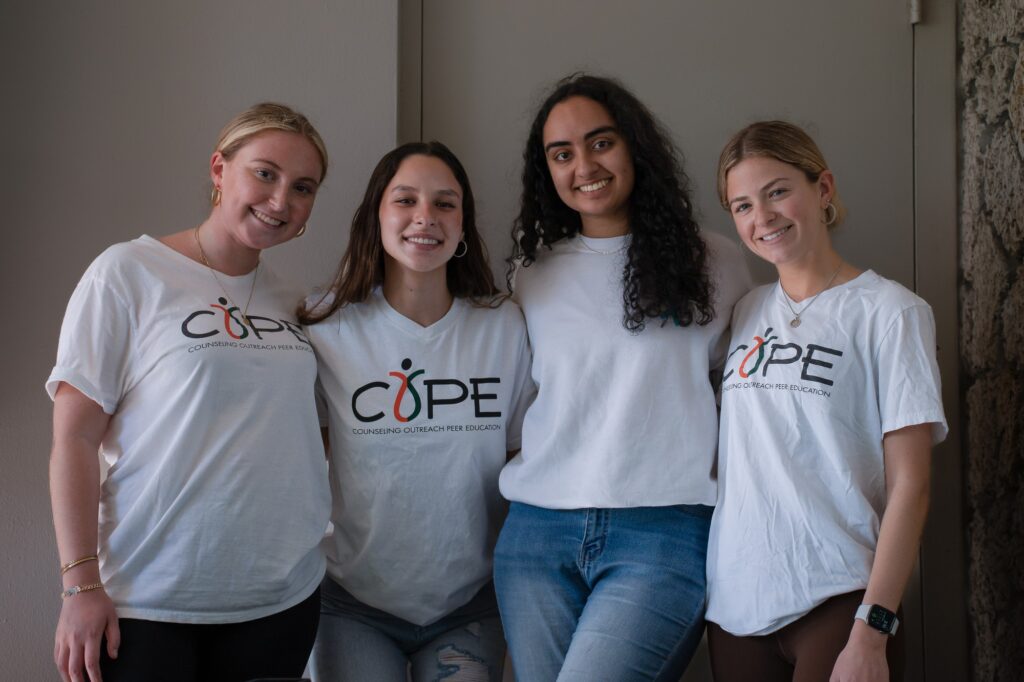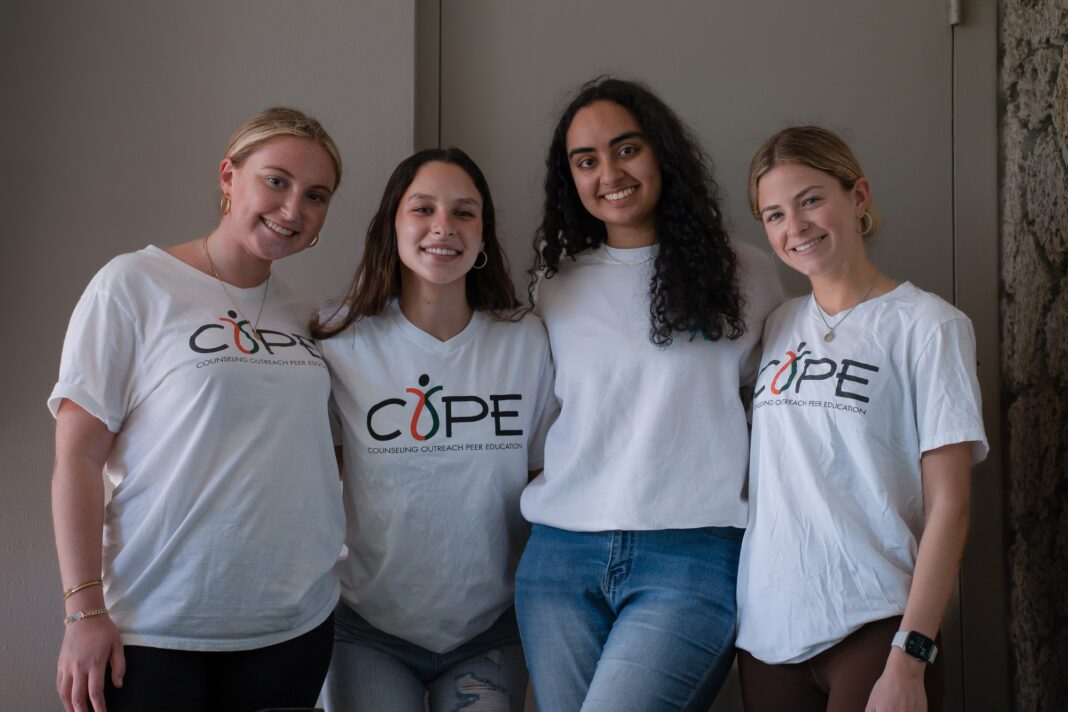
According to the Mayo Health Clinic, 44% of college students struggle with depression, but only 25% seek guidance — UM’s Counseling Outreach Peer Education (COPE) organization aims to increase that percentage of students asking for help.
COPE works to destigmatize mental health and save lives through educational outreach programs. COPE’s peer educators work alongside the University’s counseling center to help students face demanding workloads and adapt to college life.
“Some of the biggest mental struggles that we see at the counseling center from my perspective include experiences with anxiety, academic distress, difficulties coping with a breakup, as well as experiences with depression,” said Elvin Blanco, a licensed therapist with the counseling center.
To ease these struggles, COPE promotes mental health awareness and education by commemorating national observances, providing self-care tips on social media and being a personal pathway between students and UM’s counseling center.
The organization guides students to find self-care practices, like therapy or meditation, that suit them.
“We understand that [therapy] may not be the best course of acting for everybody,” COPE Chair Emily Goldstein said. “Our motto is to meet students where they are. We really just want to put out all the resources for students, and then they can take what they want from it.”
National observances like Suicide Prevention Month in September and Mental Health Awareness Month in May offer COPE the opportunity to normalize discussion of mental health disorders.
Goldstein, a senior studying psychology and community and applied psychological studies, recalled COPE’s world suicide prevention day event.
“We had created graphics for tips to help with friends who may be struggling, for warning signs to look out for in very aesthetically pleasing ways,” Goldstein said. “I think just even saying these things and not saying it in a way that we’re hiding it or we’re embarrassed…it’s just really important in the sphere of normalization.”
Therapists like Blanco find that having peer educators has encouraged more students to open up about their struggles.
“Students Helping Students: A Guide for Peer Educators on College Campuses” explains that peer educators’ awareness of what struggling students may be going through adds to their effectiveness.
“They are instrumental in sharing educational information in ways that us clinicians cannot at times, because they can relate more to their peers,” Blanco said. “They are effective in helping us reach more students, combating stigma and being role models for mental health.”
COPE hosts events like the Clothesline Project and Raising the Flag to promote sexual assault awareness and support survivors of sexual violence.
Over 5,000 Instagram viewers are reminded of the University’s Sexual Assault Resource Team (SART) and its anonymous sexual assault hotline through the Clothesline Project. Victims at Raising the Flag destigmatize conversions about sexual assault with powerful speeches.
“These big signature events that we have are public displays of normalizing the mental health conversation and engaging people in it who have it stigmatized for them,” Goldstein said. “The Clothesline Project is this huge display of t-shirts all around campus — you literally can’t miss it. We do have trigger warnings, of course.”
Goldstein leads weekly meetings with the same passion she had when she joined COPE as a sophomore. Peer educators look forward to helping with events and training to assist students.
“Even when we’re not necessarily wearing a COPE shirt or wearing a peer educator hat, we do consider ourselves to be holding that role in all the spaces that we’re in on campus,” Goldstein said.
Licensed therapists and counselors train peer educators to condole and help guide students to the University’s counseling center during COPE general body meetings.
“One of our main goals as peer educators is really just to be those spaces for students on campus and just kind of exemplify all the values peer educators hold, whether or not we’re at a COPE event,” Goldstein said.
Goldstein’s pride for COPE increases as new campus organizations and colleges request to collaborate.
“We are working to become a presence in as many places as we possibly can,” Goldstein said. “We’re really trying to extend our outreach and learn what the needs are from students themselves and then how we can best meet those needs.”
COPE encourages students to become the best versions of themselves through advocating mental health awareness and support.
Students interested in becoming a COPE peer educator can apply in the fall 2024 semester. Follow COPE’s Instagram @cope_umiami to see upcoming events.







